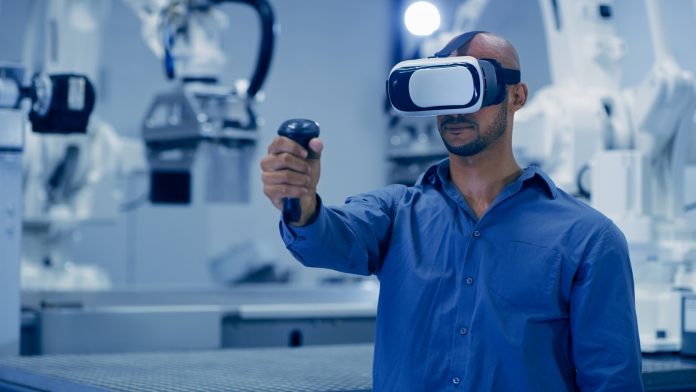Dr. William “Scott” Killgore’s team at the University of Arizona College of Medicine – Tucson, backed by a $1.5 million Department of Defense grant, pioneers a portable virtual reality system for remote military TBI assessment
Traumatic brain injury (TBI) is a prevalent concern among military personnel, especially in today’s small-team, far-flung combat scenarios. Traditionally, TBI assessments require highly trained professionals, which is impractical in remote and combat situations.
The importance of virtual reality
Dr. Killgore’s team is harnessing the power of artificial intelligence, machine learning, and computational neuroscience to develop a lightweight, portable virtual reality assessment system that can simultaneously quickly evaluate various cognitive aspects in the field.
Introducing VRMONA: A game-changer in TBI assessment
Their project, Model Development and Translation of a Virtual Reality Military Operational Neuropsychological Assessment (VRMONA) utilises deep learning neural networks to identify neuropsychological deficits.
Participants engage in an immersive VR “game” using a VR headset and hand sensor system, experiencing military-related scenarios. The VR system assesses neurocognitive domains in real time, capturing data on accuracy, response time, motor coordination, and inhibition.
Real-time analysis and cognitive evaluation
Machine learning algorithms analyse the data in real-time, allowing for a comprehensive assessment of neuropsychological performance. VR technology facilitates the evaluation of ecologically valid military scenarios, predicting real-world behaviours that are challenging to assess through traditional methods.
A promising future for VR TBI assessment
This cutting-edge research led by Dr. Killgore and his team holds excellent promise. Jordan Karp, MD, the psychiatry department chair, emphasised that the VR system’s use of deep neural networks will enable the identification of multiple cognitive abilities impacted by TBI.
This innovation has the potential to be applied in civilian and military contexts, transforming cognitive assessments by providing rapid, fine-grained evaluations that were previously unattainable.
Enhancing military preparedness and beyond
The VRMONA project has the potential to revolutionise cognitive assessment capabilities in remote locations, ultimately improving the readiness and health of military personnel.
Beyond the military, it could be adapted for various occupational specialities, making precision TBI assessments a reality. This endeavour marks a significant step toward redefining standard neuropsychological assessment, benefiting both military and civilian domains.











